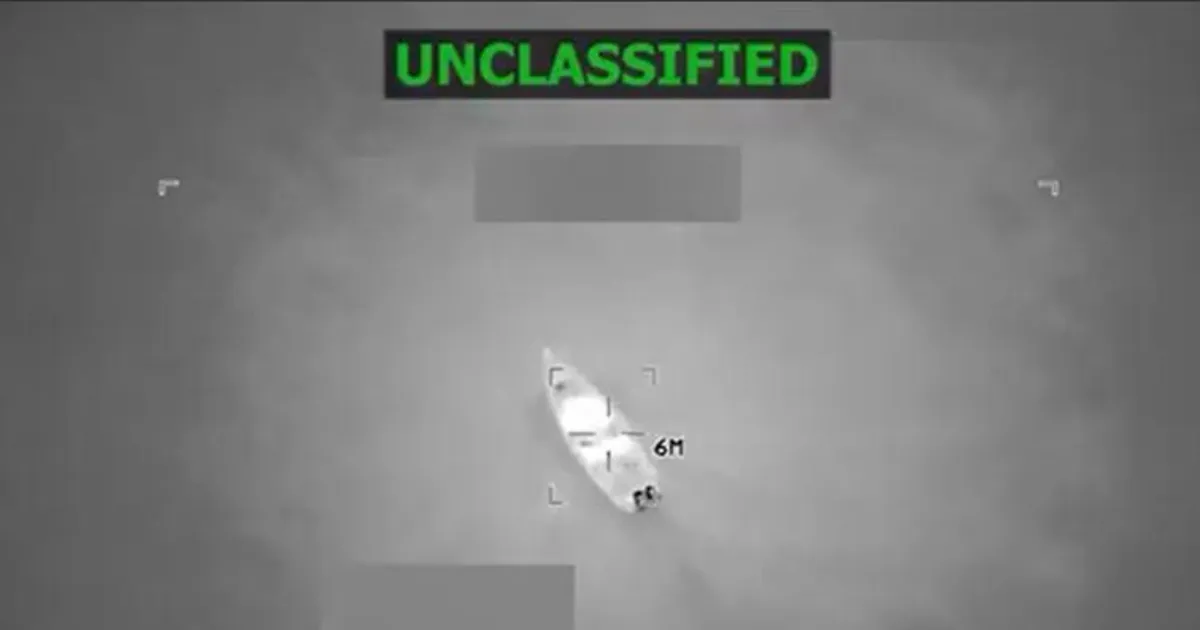
On Friday, Defense Secretary Pete Hegseth announced that the U.S. military successfully executed another strike against a vessel believed to be operated by the Venezuelan gang Tren de Aragua. This operation, which occurred in international waters, targeted a ship allegedly involved in drug trafficking within the Caribbean Sea. Hegseth emphasized the significance of this strike, noting that it was the first to take place at night and resulted in the death of all six individuals onboard.
In his social media updates, Hegseth remarked that U.S. intelligence had identified the intercepted vessel as being engaged in illicit narcotics smuggling. The ship was navigating a known narco-trafficking route and was confirmed to be carrying narcotics. He also shared an unclassified video that showcased the moment the vessel was struck by U.S. forces. This latest operation marks the tenth strike conducted by the Trump administration against suspected drug trafficking boats in recent weeks, contributing to a grim toll of over 40 fatalities.
Initially, these strikes were concentrated in the Caribbean Sea, but recent developments have seen the campaign expand into the Pacific Ocean. Last week, two individuals—one from Ecuador and another from Colombia—survived a U.S. strike targeting a suspected drug-trafficking submersible in the Caribbean. The Ecuadorian was released due to a lack of evidence against him, while the Colombian was hospitalized and faces prosecution in his home country.
In addition to these recent operations, Hegseth revealed two more strikes that took place earlier this week in the Eastern Pacific. While he alleged that these vessels were operated by a designated terrorist organization, he refrained from naming the specific group. This aggressive military approach has drawn criticism from the Colombian government, which has urged the U.S. to respect international laws and halt attacks on vessels in both the Pacific and Caribbean seas.
Colombian President Gustavo Petro expressed his concerns in an interview, advocating for a strategy that targets the leaders of drug cartels rather than lower-level operatives. “Killing the workers of the business is easy, but if you want efficiency, you have to capture the bosses,” he stated during his discussion with CBS News correspondent Lilia Luciano.
Amidst these military actions, the Trump administration has informed Congress that the U.S. is involved in a non-international armed conflict with drug cartels, arguing that the narcotics they smuggle into the country are responsible for tens of thousands of American deaths annually. However, Senator Mark Kelly from Arizona raised concerns on CBS's Face the Nation, questioning the rationale behind targeting vessels in the Caribbean, which he noted primarily transport cocaine to Europe rather than the U.S.
Lawmakers from both parties have expressed frustration with the administration’s military campaign against drug traffickers, emphasizing the need for congressional authorization for such hostilities. There are growing calls for transparency regarding the evidence that supports the claims that these vessels are indeed trafficking drugs.
During a press briefing on Thursday, President Trump reiterated his administration's commitment to continue military operations against drug traffickers but stated that he does not plan to seek a formal declaration of war from Congress. “I think we're just going to kill people that are bringing drugs into our country. Okay? We're going to kill them,” he asserted. Trump also hinted at the possibility of future land strikes, noting that drug trafficking by land has become increasingly concerning.
This ongoing military campaign raises significant questions about the legality and effectiveness of U.S. actions against drug cartels, as well as the broader implications for international law and relations with nations like Colombia.